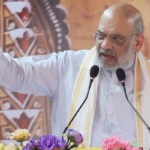Recently, Eros International re-released the 2013 romantic drama Raanjhanaa with a new, AI-generated climax. The company’s decision to alter the ending, without discussing it with the creators and lead actor involved, led to controversy that raised a serious question: is Artificial Intelligence going to negate original creativity from the past?
The controversy over the altered ending of Raanjhanaa is not merely about technology clashing with creativity. It is about a deeper, more dangerous precedent, the rewriting of art without the consent of those who created it. Notably, none of the film’s original creative team, including director Aanand Rai, writer Himanshu Sharma, or lead actor Dhanush, were informed about the decision to re-release the film with an altered, AI-generated ending.
It has to be emphasised that this is not a debate about whether AI will replace artists in the future. It is about whether the art that has already been created will be taken from them, reshaped, and served to audiences as if the original intent never existed, or was not good enough.
The original ending and why it mattered
In the film Raanjhanaa, Dhanush’s character Kundan dies in the arms of his unrequited love. His story closed in tragedy. The film broke many hearts, made viewers emotional, and stayed with fans, well, till now.
The climax was not a throwaway twist. It was the emotional spine of the film. It anchored its themes of sacrifice, longing, and futility. When the Tamil version Ambikapathy was re-released earlier this month, this emotional resolution was erased. AI stitched together a happy hospital scene, jarringly out of step with the film’s tone.
Pained by the change, director Aanand L Rai called it a “betrayal” and “deeply disrespectful”. He stressed that the ending was deliberate, built into the film’s moral and emotional architecture.
Dhanush went further and said the altered climax “stripped the film of its soul” and made it “not the film I committed to”.
For the love of cinema 🙏 pic.twitter.com/VfwxMAdfoM
— Dhanush (@dhanushkraja) August 3, 2025
Studios versus creators
Legally speaking, Eros International owns the rights to Raanjhanaa. In the world of contracts, that ownership can include the ability to modify, re-release, or adapt a work. However, cinema is not an assembly line product. It is a complex equation of creative labour, vision, and artistic voice. The question here is not whether the studio could do this. It is whether they should.
There were no meetings, no warnings, no conversations, only the fait accompli of seeing his work rewritten by a machine. Such exclusions speak to a widening gulf between the corporate entities that own films and the humans who gave them life. However, Group CEO of Eros Media World, Pradeep Dwivedi claimed that it is not a “replacement” but a “reinterpretation”.
Emphasising on the legal rights, he wrote in a LinkedIn post, “Eros, as the exclusive producer and copyright holder, holds full legal and moral rights under Indian Law. This project was executed with sensitivity to the original vision, but also with creative freedom to offer a new emotional lens to today’s audiences. This is in sync with global cinematic practices—like anniversary cuts or sequels—and to resist the evolving reality of how stories live on.”
The dangerous precedent
Those who defend AI-edited endings may argue that re-releases with altered content are nothing new. Films have been re-cut for television, edited to meet censorship demands, or repackaged for different markets. However, those changes, no matter how controversial, were done by human editors interpreting material within a cultural and creative context.
In this case, an algorithm was given the task of rewriting a creator’s definitive vision without their blessing. This was done not for artistic reinterpretation but for marketing. The line between restoration and revisionism is no longer blurred, it has been erased.
More than a moral rights issue
At the heart of the controversy is the concept of moral rights, the rights of authors, creators and all the stakeholders who were involved in making the film. These people have the right to protect the integrity of their work and to object to derogatory treatment of it. In many jurisdictions, moral rights are weak or non-existent for filmmakers. In India, where contractual obligations override such protections, the balance tilts heavily towards rights-holding corporations.
If this action of Eros International stands unchallenged, filmmakers will have to reckon with the possibility that their works, even celebrated ones, can be fundamentally rewritten years later, without them ever being consulted.
Industry backlash
The backlash has been swift. After Dhanush, Rai and other stakeholders, filmmaker and actor Farhan Akhtar publicly sided with Rai and stated that if the creator is unhappy, that sentiment should matter. Other voices in the industry have warned that this will not be the last time AI is used to “improve” or “update” older works for contemporary tastes. Filmmaker Neeraj Pandey has also come out in support of the original team.
Reportedly, Rai and Dhanush are also considering legal remedies to protect not only Raanjhanaa but also their other films from similar treatment. However, legally speaking, the studios have the upper hand as they own the rights to the film.
A future of algorithmic revisionism
The implications reach far beyond the Indian film industry. AI technology is now capable of altering performances, rewriting dialogue, and generating photorealistic scenes. While some may see this as harmless enhancement, the danger lies in the potential for cultural revisionism. With AI, the meaning of a work can be changed, uncomfortable truths can be erased, or endings can be sanitised to fit commercial formulas.
Think about it. If studios start treating films as endlessly editable assets, then history itself becomes mutable. Tomorrow’s audiences may never see the works as they were meant to be experienced.
The need for boundaries
With this controversy, there is a rising demand to create boundaries. Technology will keep evolving and AI will undoubtedly play a role in future filmmaking. In fact, many studios and creators have already started using AI to generate full-length movies. However, past works that have been completed and released must be protected from unauthorised tampering. This means there is a need for stronger moral rights protections, industry-wide ethical guidelines, and public pressure on studios to respect creative intent.
Art cannot become a living document that is constantly at the mercy of market trends and new tools. Its permanence is part of its value. Altering the climax of Raanjhanaa may seem like a marketing stunt, but it is a signal that the future holds much larger use of AI to alter previously published work.
The final frame
In the end, this controversy is not about nostalgia or fan outrage. It is about the sanctity of creative vision. The original ending of Raanjhanaa was a statement, an emotional truth shaped by its makers. By replacing it with an AI-generated smile, the studio has done more than change a scene, it has rewritten the meaning of the story.
If creators cannot trust that their finished work will remain as they intended, then every film, every song, every piece of art is vulnerable to silent, unconsented rewrites. Once we accept that, we risk living in a cultural archive where nothing is truly original and nothing is truly safe.













